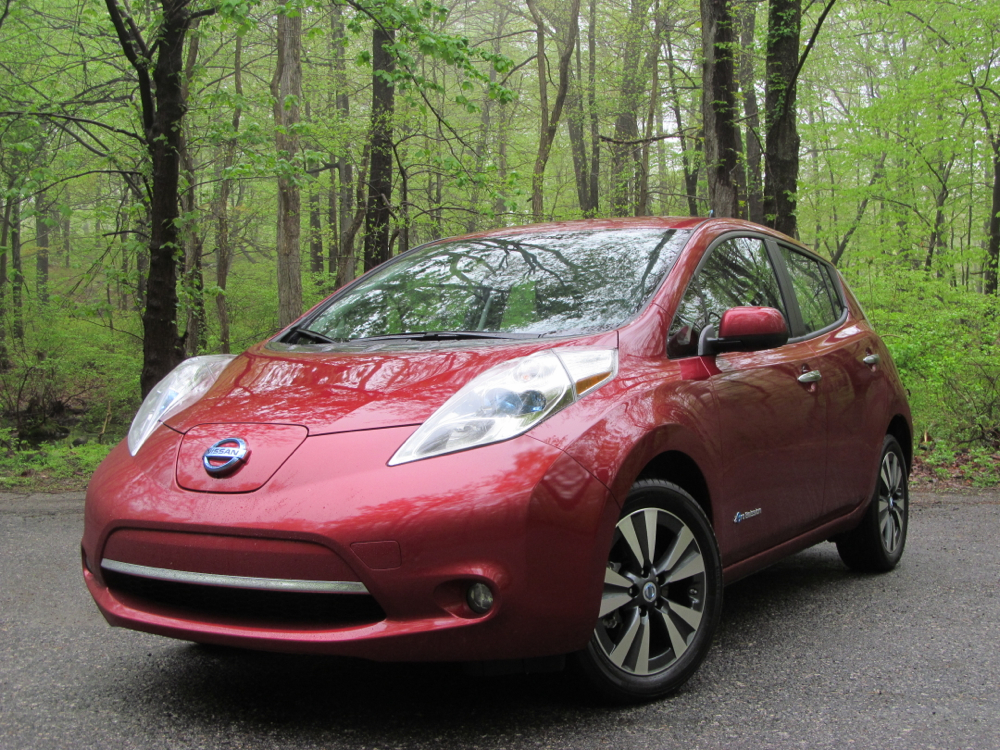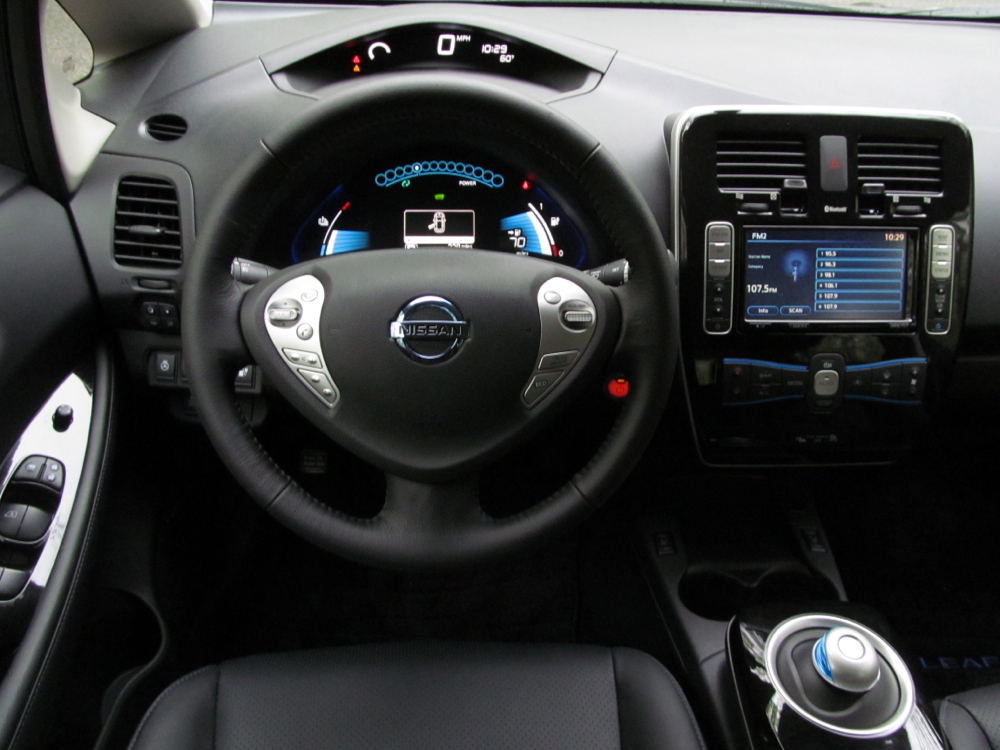Electric-car drivers rely heavily on in-car telematics and various smartphone apps to monitor their cars' range, plan ahead to avoid "range anxiety," and manage the charging process remotely.
Yet the information provided by these systems isn't always as complete as it could be.

2014 Nissan Leaf, Bear Mountain, May 2014
Carwings, the telematics system built into the Nissan Leaf, has come in for particular criticism from owners for variable and inaccurate range estimated and outdated information on charging locations.
Nissan now says it hopes to improve and expand the capabilities of Carwings in future, and would like to add the ability to gather and analyze data on the battery pack's health.
According to an interview in WardsAuto, the maker of the world's highest-selling electric car wants to use this expanded capability to get early warnings of potential incidents like the rash of customer complaints over heat-related range loss in Arizona two years ago.
In those cases, Nissan bought back several cars under Arizona's lemon law and extended the Leaf warranty. A revised Carwings could be more proactive, a Nissan representative told Wards at a recent telematics conference.
The system could be used to give customers "more specific information" on battery degradation, and provide driving style or charging tips to help stretch battery life.

2014 Nissan Leaf, Bear Mountain, May 2014
Carwings today provides more basic information, like battery state of charge and estimated range. It also directs owners to the nearest charging station, and allows for remote control of charging.
The current incarnation of Carwings does allow Nissan to monitor some data produced by the cars, although owners can opt out. Nissan claims it could use this connection to read signals from the battery pack that would help predict its life span.
Nissan is also reportedly open to the idea of "insurance telematics"--collecting data on driving habits to potentially lower a customer's insurance rates.
However, that depends on the reaction of customers. Nissan acknowledged that 61 percent of customers are hesitant to provide personal data in exchange for discounts or services.
_______________________________________________











